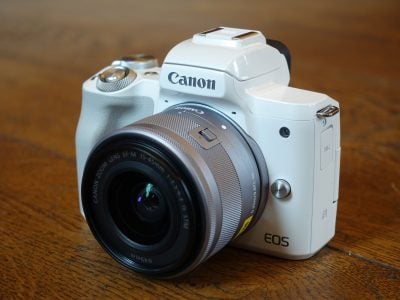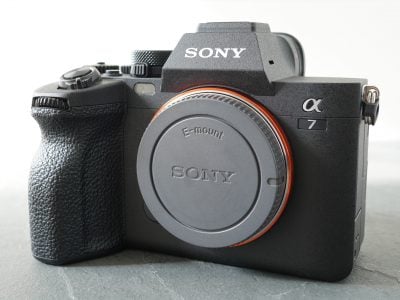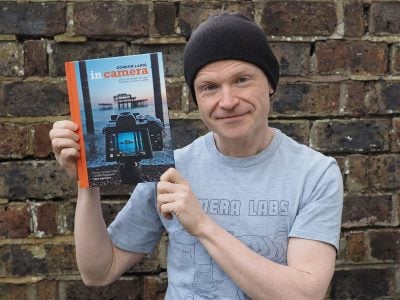Sony Alpha DSLR-A380
-
-
Written by Gordon Laing
Studio resolution: Sony Alpha DSLR-A380
Horizontal resolution using in-camera JPEGs
Sony Alpha DSLR-A380 with Sony DT 18-55mm SAM |
Canon EOS 500D / T1i with EF-S 18-55mm IS | |
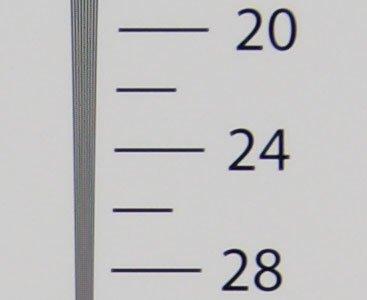 | 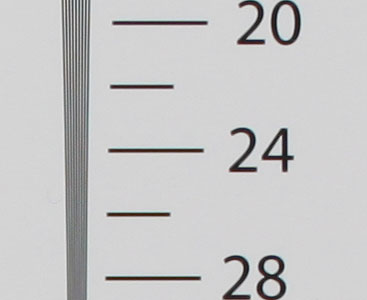 | |
2300 lpph, 18-55mm at 35mm, f5, 100 ISO |
2400 lpph, 18-55mm at 35mm, f8, 100 ISO | |
Nikon D5000 with Nikkor DX 18-55mm VR |
Olympus E-620 with Zuiko Digital 14-42mm | |
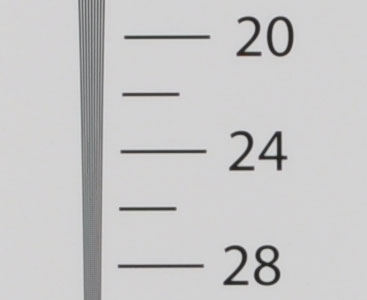 | 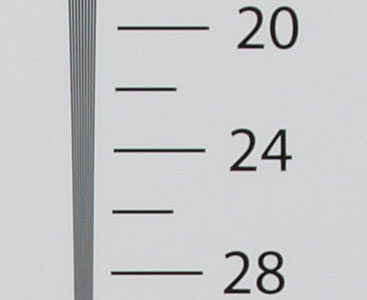 | |
2250 lpph, 18-55mm at 35mm, f8, 200 ISO |
2350 lpph, 14-42mm at 25mm at f8, 100 ISO |
Vertical resolution using in-camera JPEGs
Sony Alpha DSLR-A380 with Sony DT 18-55mm SAM |
Canon EOS 500D / T1i with EF-S 18-55mm IS | |
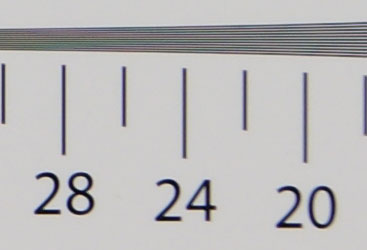 | 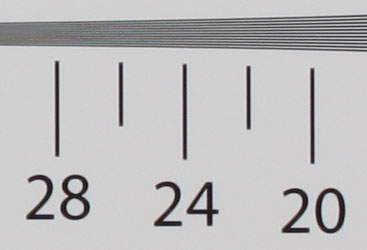 | |
2350 lpph, 18-55mm at 35mm, f5, 100 ISO |
2400 lpph, 18-55mm at 35mm, f8, 100 ISO | |
Nikon D5000 with Nikkor DX 18-55mm VR |
Olympus E-620 with Zuiko Digital 14-42mm | |
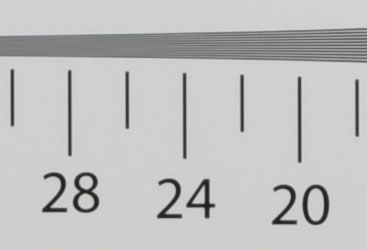 | 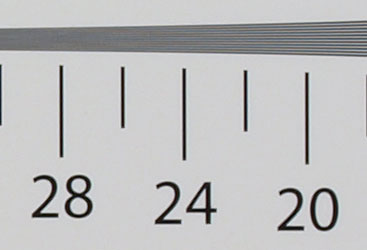 | |
2250 lpph, 18-55mm at 35mm, f8, 200 ISO |
2350 lpph, 14-42mm at 25mm at f8, 100 ISO |
Sony Alpha DSLR-A380 Studio resolution: JPEG versus RAWWe photographed our test chart in the A380’s RAW plus Large Fine JPEG mode, allowing us to directly compare images created from exactly the same data. Below are crops taken from the original JPEG file alongside the RAW version, processed in the supplied Image Data Converter SR 3.1 using the default settings. As also seen on the previous page, the converted RAW sample looks very similar to the in-camera JPEG when both are using their default settings. Look a little closer though and you’ll notice a slightly different approach to dealing with converging lines at the sensor’s limiting resolution, with the converted RAW file exhibiting more apparent moiré; indeed it’s responsible for a fractionally lower score in our vertical resolution sample. So as before, shooting in RAW and converting with the default settings hasn’t delivered any apparent improvement over the in-camera JPEG, but again it gives you greater opportunity to tweak. As always, different settings, not to mention different RAW converters may deliver superior results, but you shouldn’t expect them by simply using the supplied software with its default settings. Now let’s check out the camera’s performance at different sensitivities in our Sony A380 High ISO noise results page. |
Sony Alpha DSLR-A380 JPEG with Sony DT 18-55mm SAM |
Sony Alpha DSLR-A380 RAW with Sony DT 18-55mm SAM | |
 | 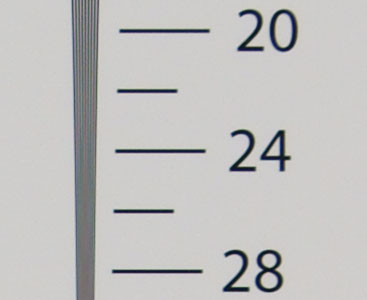 | |
2300 lpph, 18-55mm at 35mm, f5, 100 ISO |
2300 lpph, 18-55mm at 35mm, f5, 100 ISO | |
Sony Alpha DSLR-A380 JPEG with Sony DT 18-55mm SAM |
Sony Alpha DSLR-A380 RAW with Sony DT 18-55mm SAM | |
 | 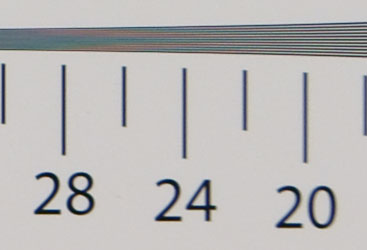 | |
2350 lpph, 18-55mm at 35mm, f5, 100 ISO |
2300 lpph, 18-55mm at 35mm, f5, 100 ISO |
Sony Alpha DSLR-A380 results continued…
Real-life resolution / Studio resolution / High ISO Noise
 |
 | |
To measure and compare the Sony Alpha DSLR-A380’s resolving power we photographed the Enhanced Digital Camera Resolution Chart with it and a number of rival cameras, each using their best quality JPEG and default image tone and sharpening settings; RAW comparisons can be found lower down on this page.
The lenses used were tested at every aperture setting and the best results selected for this page. Magnified assistance in Live View was used to confirm the focusing.
The crops are taken from the converted RAW images, saved as High Quality JPEGs in Photoshop CS4 and presented here at 100%. Each number represents 100 lines per picture height (lpph), so a figure of 20 means a resolution of 2000 lpph.
In terms of resolving power, the Sony Alpha DSLR-A380 delivers 2300 and 2350 lpph of horizontal and vertical resolution respectively when equipped with its DT 18-55mm SAM kit lens. In terms of numbers, this ranks it roughly as you’d expect compared against its main rivals here, scoring a little higher than the 12.3 Megapixel Nikon D5000 and a little below the 15.1 Megapixel Canon EOS 500D / Rebel T1i. The Olympus E-620 scores similarly, despite having a slightly lower resolution, because its squarer 4:3 aspect ratio concentrates more of its pixels across the height of the test chart.
This is a good score for the A380, although as we saw on the previous page, this doesn’t necessarily translate into greater real-life detail compared to good 12.3 Megapixel models like the Nikon D5000 – indeed the punchier image processing of this lower resolution DSLR reveals finer detail using the default settings.
It’s also interesting to look back at our results for the Alpha A350 which shared the same sensor, but a different DT 18-70mm kit lens. In our tests with this combination, the A350 still erred on the side of softer image processing, but managed to resolve finer detail from our resolution chart. So like many kit lenses on high-res bodies, the new DT 18-55mm SAM unsurprisingly isn’t getting the best from the A380. For that you’ll want to upgrade to superior optics, such as the excellent Carl Zeiss 16-80mm zoom – see our full review of this model.
Now scroll down to see if shooting in RAW can improve the resolution score, or alternatively head straight on over to our High ISO Noise results page to see how it compares across its sensitivity range.
